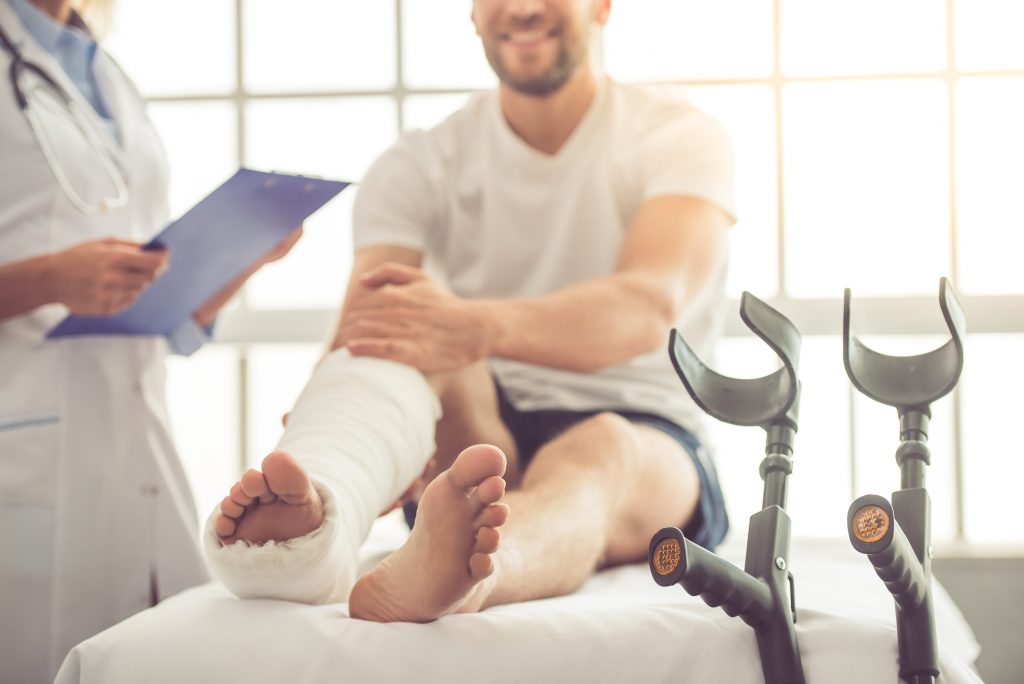
Editor’s Picks
Study Suggests Web-Based Patient Education Can Outperform Traditional Methods in Orthopedic Medicine
By Henry Kronk
April 28, 2018
We’ve all heard not to believe everything we read on the internet. Doctors exasperated by their hypochondriac patients who’ve spent too much time on WebMD have nearly become a cliché. But a new study has found that web-based patient education efforts can, in some cases, be more effective than traditional instruction.
These efforts provide a real opportunity to help people understand their conditions, make informed consent, and live healthier lives. A group of researchers have recently conducted a review of existing studies that looked specifically at ‘web-based patient education interventions’ for orthopedic patients. The team headed by Danish researcher Tessa Dekkers from Delft University of Technology published their results on Monday.
Web-Based Patient Education at a Glance
According to the authors, there’s a growing need for more information on the subject. Put simply, more orthopedic patients are using the internet.
“[I]t is now common for patients to also use the internet to learn about health and illness [9]. People with orthopedic conditions such as osteoarthritis, rheumatic arthrosis, or trauma form no exception to this trend. Internet use among this group increases rapidly: 79% of patients had internet access in 2012, and among them, 23% in 2010 to 65% in 2012 had used the internet to research their orthopedic condition or upcoming treatment [10,11].”
But despite this trend, many doctors don’t trust the internet as a medium in general. “Most of these stress the poor quality of online health information, which is deemed overly commercialized and poorly readable even when produced by qualified HCPs [19–21],” the authors write. “Furthermore, despite increasing internet access in the population as a whole, clinicians fear the generalizability of previous findings to elderly patients who may be inexperienced with internet usage [13,17,22].
After sifting through over 1,000 studies, the team identified 14 that looked at 10 different web-based patient education interventions. They came in with two hypotheses:
Hypothesis 1: Web-based patient education interventions have a positive effect on patients’ knowledge, but not on anxiety or clinical outcomes.
Hypothesis 2: theory-based, or professionally facilitated, Web-based patient education interventions perform better than generic health information websites.
To begin, the researchers identified several inconsistencies with the studies in question. While most involved single websites, they differed in terms of information delivery. Some were rather basic, with just a combination of image and text. Others used video.
“While half of the interventions could be considered dynamic in terms of multimedia use,” Dekkers’ team found, “only one provided highly dynamic activities (meaning, more than three interactive online activities were offered) [51]. Activities offered to the patient on the dynamic Bone Health Improvement Project website included problem-solving exercises, goal-setting exercises, and self-assessment. Among the more static websites, self-assessment was the most common interactive activity [53,56]. Due to the limited use of interactive online activities, we were not able to assess the influence interactivity might have on patient outcomes.” Notably, only two studies used extra educational material, such as patient testimonies. Some also included forums or message boards.
 The team identified two main limitations in their survey. First, conducting a literature review is always difficult because you’re never completely comparing apples to apples. Second, none of the studies observed older patients who are less likely to be unfamiliar with the internet.
The team identified two main limitations in their survey. First, conducting a literature review is always difficult because you’re never completely comparing apples to apples. Second, none of the studies observed older patients who are less likely to be unfamiliar with the internet.
“While keeping these limitations in mind, the currently available evidence does suggest that patients who are offered Web-based patient education find the service both usable and satisfactory [43,48,49,51,52,53,55],” the authors write. “It increases their knowledge levels [44,45,48–50,53–55], which also results in patients who feel knowledgeable [44,45,49,54,55] and are able to participate in the informed consent process [48,49,55].”
“Web-based education appeared to be more effective in these aspects than traditional education methods [44,45,48–50]. Despite their knowledge gain, the provision of online information to patients does not subsequently reduce patients’ anxiety [47–49]. These findings support our first hypothesis that Web-based patient education interventions would have a positive effect on patients’ knowledge but not on anxiety. Contrary to second hypothesis, however, Web-based education was not found more effective than generic health information websites [49,51]. A possible explanation for this finding is that both Web-based patient education materials and generic health information websites suffer from issues such as poor readability [21,57–59].”









[…] eLearning Inside: Soon, Both Students and Teachers Will Be (Online Learning) Digital Natives […]